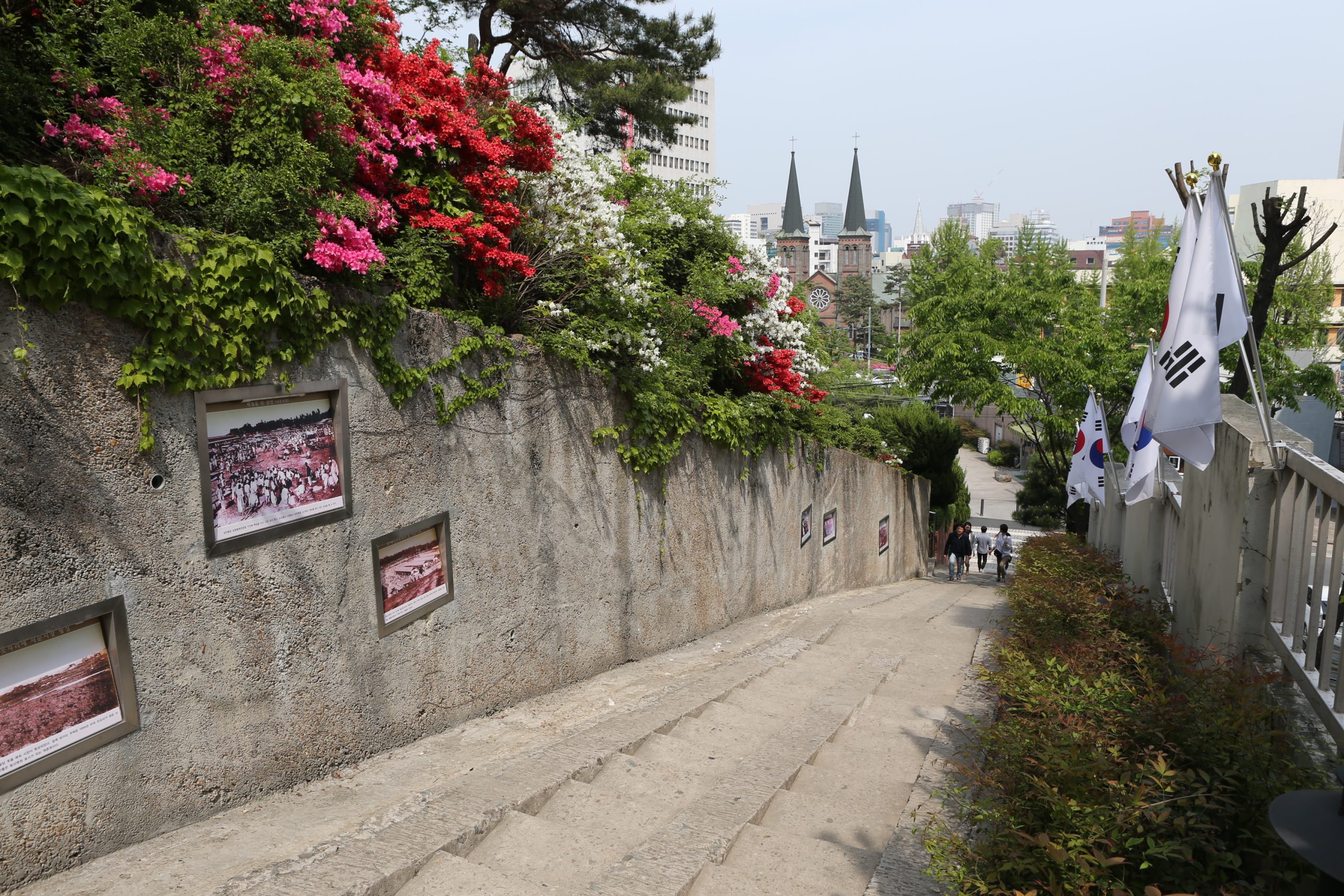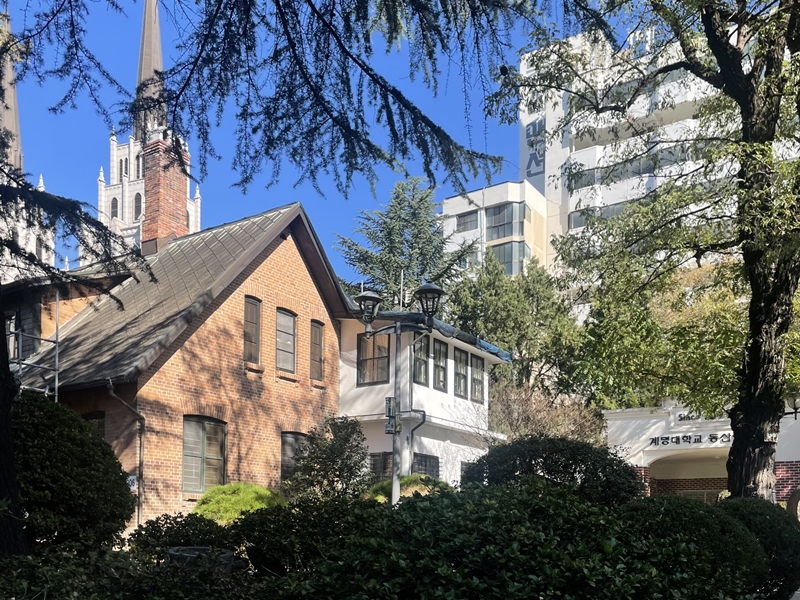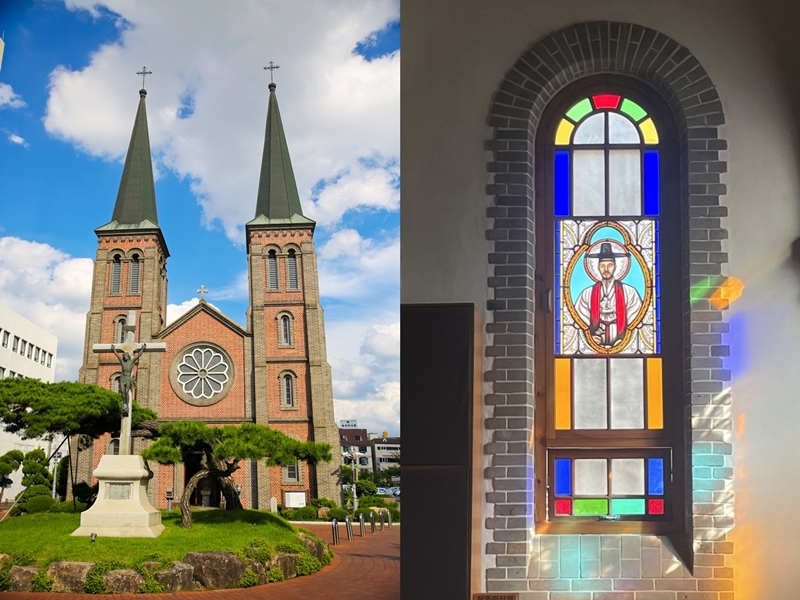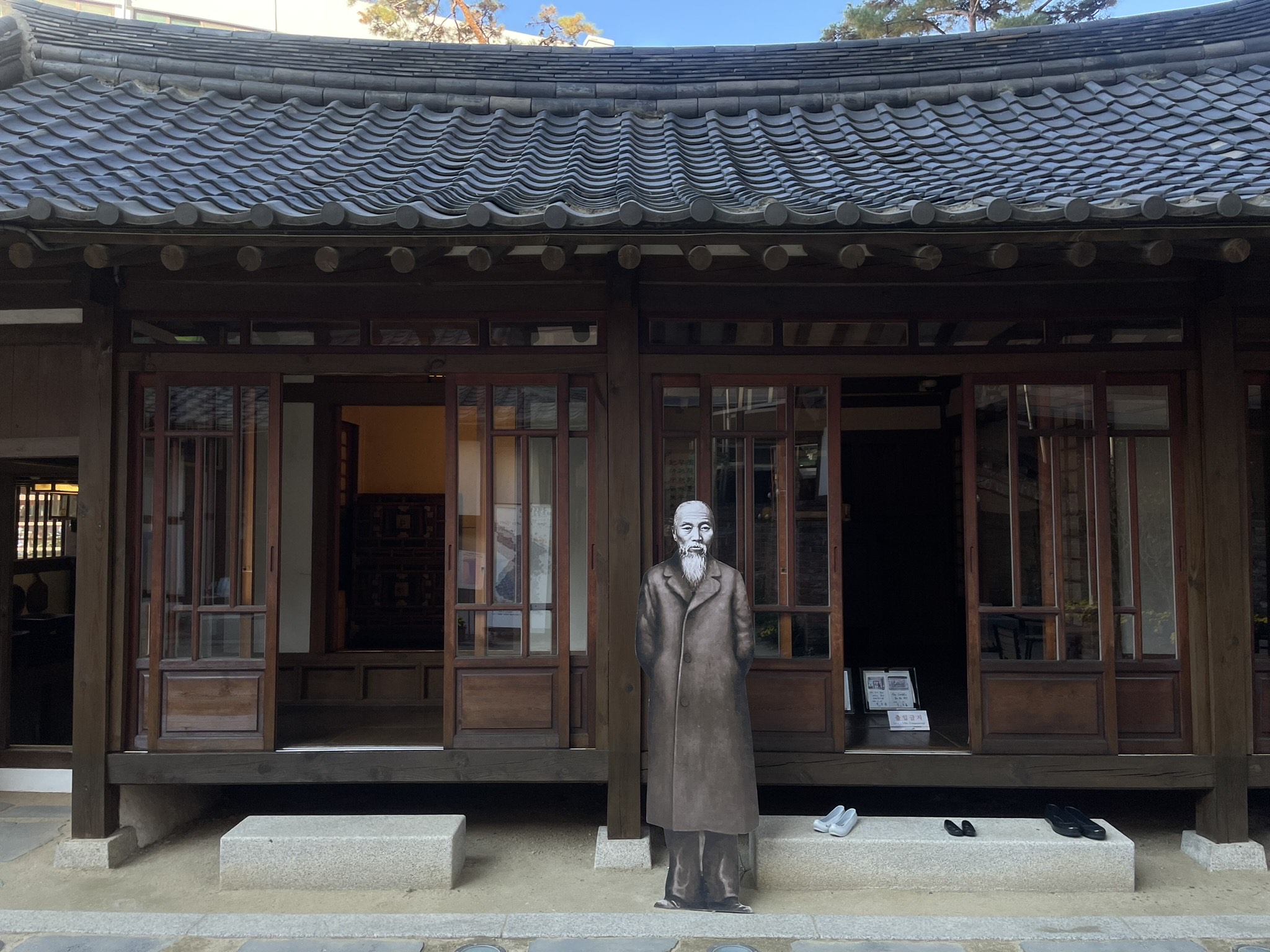문화체육관광부는 문화매력100선(로컬100)을 통해 각 지역 명소, 콘텐츠, 명인 등을 소개하고 지역 문화의 가치를 홍보하고 있다. 코리아넷은 로컬100 중 외국인이 가보면 좋을 숨겨진 명소를 소개한다.
The Ministry of Culture, Sports, and Tourism has a list of 100 cultural attractions dubbed Local 100 featuring each region’s hot spots, content, and cultural experts to promote the value of regional culture. This Korea.net series explores select places from Local 100 recommended for foreign visitors.

대구는 한국 근대 문화와 역사를 보여주는 대표적인 도시다. 한국전쟁 당시 한국군과 유엔군이 남한 최후의 보루였던 낙동강 방어선 전투에서 승리하면서 낙동강에서 약 40km 떨어진 대구는 피해를 입지 않고 당시 모습을 지켜낼 수 있었다.
Daegu is a leading city for the country’s contemporary culture and history. The metropolis avoided damage and remained intact during the Korean War (1950-53), located just 40 km from the Nakdonggang River, which was South Korea’s last defense line that was successfully defended by the Republic of Korea and United Nations forces.
대구 중구에 위치한 근대문화골목에는 19세기 후반부터 20세기 중반까지 역사를 보여주는 건물들이 모여있다. 이곳은 중구의 골목 탐방 투어 다섯 코스 중 하나로, 참가자들은 문화해설사의 설명을 들으며 둘러볼 수 있다.
Modern Cultural Street in the city’s Jung-gu District has clusters of buildings reflecting the nation’s history from the late 19th to mid-20th century. Five street tours are available with commentary from guides.
코리아넷은 지난달 14일 이영숙 골목투어 해설사와 함께 근대문화골목을 방문했다. 이 해설사는 “비교적 짧은 구간에 볼거리가 풍부해 외국인 관광객에게도 인기가 많다”며 전체 소요 시간은 두 시간 정도라고 설명했다.
Korea.net on Nov. 14 visited the Modern Cultural Street with guide Lee Young-suk. “It has an abundance of things to see in a relatively short time, so it’s also popular among foreign tourists,” she said, adding that the tour takes about two hours.

골목투어의 시작을 알리는 벽돌 문을 지나면 청라언덕이 있다. 교통이 편리하고 인구 밀도가 높은 대구를 선교 기지로 삼기 위해 미국 선교사들이 20세기 전후 한국으로 건너와 거주했던 곳이다. 이 해설사는 “당시 주택들은 빨간 벽돌, 유리, 철 등을 사용하는 미국식 건축 방식에 따라 지어져 여름 무더위를 막기 위해 지붕에 담쟁이를 올렸다”며 “멀리서 보면 파란 지붕이 담쟁이로 덮였다 하여 푸를 청(靑), 담쟁이 라(蘿)가 붙어 청라언덕이라고 불리게 됐다”고 말했다.
Passing by a brick gate signifying the beginning of the tour led to Dongsan Cheongna Hill. American missionaries lived here in the early 20th century due to Daegu’s convenient transportation and high population density under plans to make the city a base for missionary activities.
“Houses at the time were made using American architecture using red bricks, glass, and iron, and ivy was piled on the roof to ward off the summer heat,” Lee said. “From afar, the roof was covered with ivy and looked blue, so the hill was named Cheongna Hill since cheong means ‘blue’ and na means ‘ivy.'”
청라언덕에는 선교사들이 살았던 블레어 주택, 챔니스 주택, 스윗즈 주택이 남아있다. 이 해설사는 “챔니스 주택은 가장 완벽한 형태로 남아있고 드라마 ‘각시탈'(2012) 같은 독립운동 관련 드라마나 영화에 등장해 관광객에게 인기 있는 주택”이라고 소개했다.
The houses of missionary families Blair, Chamness, and Switzer remain on this hill. “House of Chamness has retained its pristine form and appeared in dramas or films related to the national independence movement such as the series ‘Bridal Mask,’ so it’s popular among visitors,” the guide said.

청라언덕을 지나 3.1만세운동길 계단을 따라 내려오면 영남지방 최초의 고딕양식 성당인 계산성당이 모습을 드러낸다. 성당은 1902년 완공 당시 주변에 논과 우물이 있어 사람들이 많이 오고다니는 길목에 위치했다.
The tour passed by Dongsan Cheongna Hill and went down the stairs of March First Independence Movement Road to reach Gyesan Cathedral, the first facility of its kind using Gothic-style architecture in the Yeongnam region, an area comprising the country’s provinces of Gyeongsangnam-do and Gyeongsangbuk-do and metropolitan cities of Busan, Daegu, and Ulsan. Because of rice paddies and wells nearby, the area around the cathedral had a high floating population when its construction was completed in 1902.
성당 내부에는 한국 최초 가톨릭 사제인 성 김대건 안드레아 신부의 왼쪽 손목뼈와 유품이 안치되어 있고 성 김대건 신부의 모습을 새긴 스테인드글라스가 있다. 이 해설사는 건립 당시 프랑스에서 들여온 스테인드글라스에 대해 “아침에는 앞쪽에 위치한 성모상이, 낮에는 성당 내 기둥이 오색 빛으로 물들어 아름다운 장면을 연출한다”고 설명했다.
The left wrist bones and relics of St. Andrew Kim Taegon, Korea’s first Catholic priest, are enshrined inside the cathedral. His stained glass image also decks the interior. Saying the stained glass came from France when the cathedral was built, Lee added, “The statue of St. Mary shines in the morning and the columns inside the cathedral sparkle in five colors in the afternoon to create a beautiful scene.”

성당에서 나와 3.1운동 벽화를 따라 걷다 보면 서상돈 고택에 다다른다. 서상돈은 1907년부터 1908년 사이 국민 모금으로 국채를 갚기 위해 국채보상운동을 주도한 독립운동가다.
Walking out of the cathedral and along a mural of the March First Independence Movement led to the House of Seo Sang-don. Seo was a pro-independence activist who led a national movement for repaying government bonds from 1907-08 through fundraising drives.
이 해설사는 “대구 최고의 갑부였던 서상돈 선생은 자신의 재산을 천주교 발전, 대구의 경제, 교육 발전을 위해 사용했다”며 “사람들에게 소작할 땅을 나눠주기도 했기 때문에 후에 자손들이 이들에게 매년 쌀을 받아 밥은 굶지 않고 살 수 있었다”는 이야기를 전했다.
“As the richest man in Daegu, Seo used his wealth to develop Catholicism, Daegu’s economy and education,” Lee said. “He also distributed his land for tenant farming so that his descendants could get rice from the farmers every year and live without starving.”
이밖에도 근대문화골목 주요 볼거리로는 3.1만세운동길, 시인이자 독립운동가였던 이상화의 고택, 대구 최초의 교회인 대구제일교회의 옛 예배당 건물 등이 있다. 이 해설사는 “골목투어를 통해 근대 건축물과 독립운동가의 정신이 남아있는 대구를 만나보길 바란다”고 말했다.
Other highlights of Modern Cultural Street are the independence movement road, the House of Lee Sang-Hwa, a poet and independence activist, and the old chapel at Jeil Church, the first church in Daegu. Lee said, “I hope that you see modern architecture and the spirit of independence activists on this alley tour.”
근대문화골목 투어에 관심있다면? How to tour Modern Cultural Street
# 외국인 관광객을 위한 골목투어는 매주 토요일 오후 2시에 진행되며 영어, 일어, 중국어 해설을 제공받을 수 있다. 자세한 정보는 대구 중구청 누리집(https://www.jung.daegu.kr/new/culture/pages/tour/page.html?mc=0037)에서 확인할 수 있다.
For foreign visitors, the tour is offered at 2 p.m. every Saturday in English, Japanese and Chinese. More information is available on Jung-gu District’s official website (www.jung.daegu.kr/new/english/pages/tour/page.html?mc=5032).
# 서울역에서 KTX를 이용하면 동대구역까지 약 1시간 40분에서 2시간이 소요되며, ITX 이용시 대구역까지 약 3시간 30분이 소요된다.
A KTX (Korea Train Express) ride from Seoul Station to Dongdaegu Station takes about an hour and 40 minutes to two hours. The ITX (Intercity Train Express) from Seoul Station to Daegu Station takes about 3 1/2 hours.
대구 = 이다솜 기자 dlektha0319@korea.kr
By Lee Dasom, dlektha0319@korea.kr
